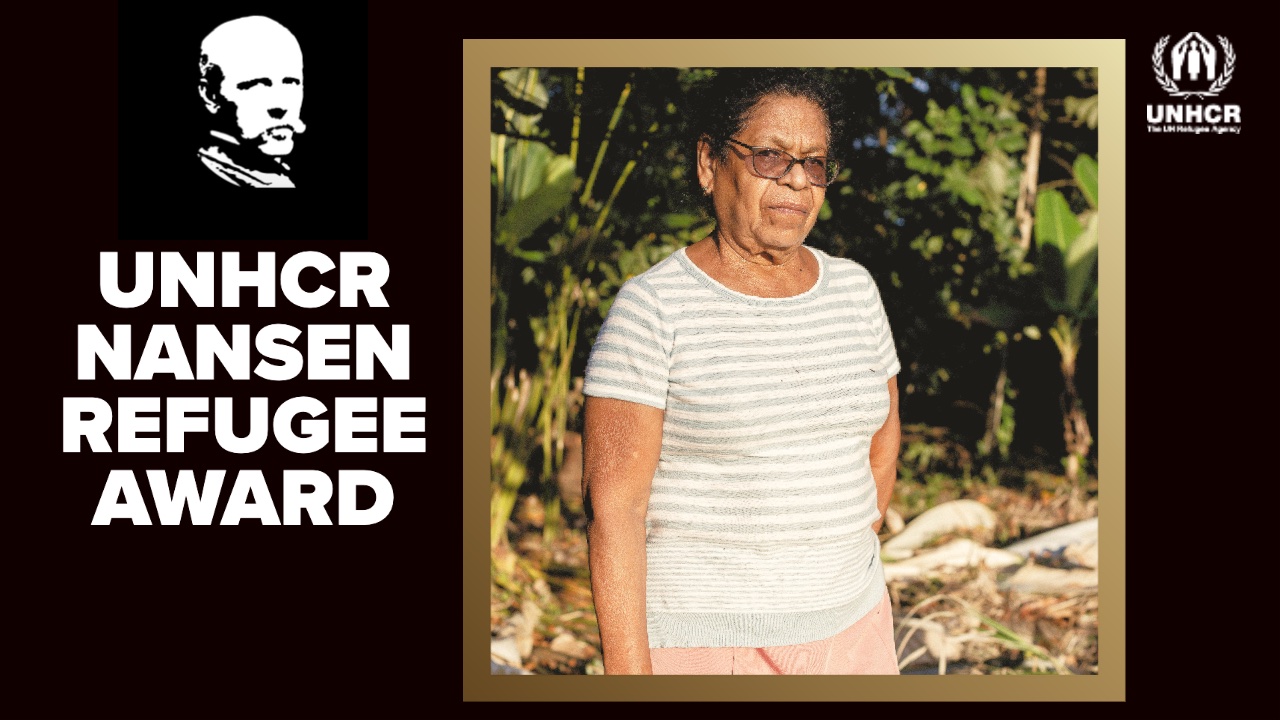16 Days of Activism: Speaking out against sexual violence in Colombia
16 Days of Activism: Speaking out against sexual violence in Colombia

BOGOTÁ, Colombia, December 6 (UNHCR) - The annual 16 Days of Activism Against Gender Violence campaign ending next week has special meaning for uprooted women in Colombia, where one in every six of them is a victim of sexual violence.
Moreover, according to the country's ombudsman, in 2008 more than 40 per cent of the forcibly displaced women known to have been victims of sexual and gender-based violence (SGBV) in Colombia in 2008 were aged under 14 years old. Figures for last year are not yet available.
UNHCR and its partners, including the central government, are very concerned by this data. To address the situation, the refugee agency is running projects on SGBV prevention and protection in most of its field offices.
The agency works with a wide range of people to maximize its efforts to reduce the prevalence of sexual and gender-based violence, help the victims, provide support and spread awareness about the negative impacts on society. Five of UNHCR's partners commented on their efforts to tackle the scourge.
Marta runs an organization for women in deprived areas of the northern city of Cucuta, close to the border with Venezuela. In 1999, she was a victim of violence carried out by illegal armed groups. "Ever since, I have wanted to help other women in the same situation. I have seen women too scared to even give their names who are now standing up and running their own organizations. So I feel really proud. We are few, but we work like ants," Marta said.
Ana is a leading member of an indigenous group in the volatile southern department of Putumayo, where SGBV is a major problem among the local tribes. Her goal is to reduce domestic violence. "I think it is really important to work with women, especially widows and single women, to try and improve and stabilize their socio-economic situation. In my opinion, domestic violence can stop when there is mutual respect and values. So I want to focus on work with the whole family."
Yiján is a leading member of the Afro-Colombian community in Quibdó, capital of the western department of Chocó. She spreads awareness about SGBV among displaced women and the host community and believes that women should organize themselves. "A single woman sitting in her home thinking about how to change her life is very different to many women working actively together. I have met women who, at the beginning of this participatory process of getting to know themselves, had a lot of issues with their husbands. I have later seen the same husbands take part in meetings, recognizing their wives as women. That is really lovely."
Daminson is a student in Buenaventura, Colombia's most important Pacific port and a haven for internally displaced people in the west. He decided to join a youth group that fights against sexual and gender-based violence because "it is a serious problem. You see it in a lot of families . . . Also, many young men show no respect towards their girlfriends. We create [awareness] plays for schools, communities and other places and we try to show that all problems can be solved by talking."
Luz leads a women's organization in the northern town of Chigorodó, near the border with Panama. She says tolerance is vital. "In the organization that I run, most members are internally displaced women who are on their own. So, it is important to teach people that women are able to live and work without men. We also urge victims of sexual and gender-based violence to lodge a complaint with the relevant authorities. For example, one of our members was attacked and she reported this to the authorities, who responded."
By Gustavo Valdivieso in Bogotá, Colombia








